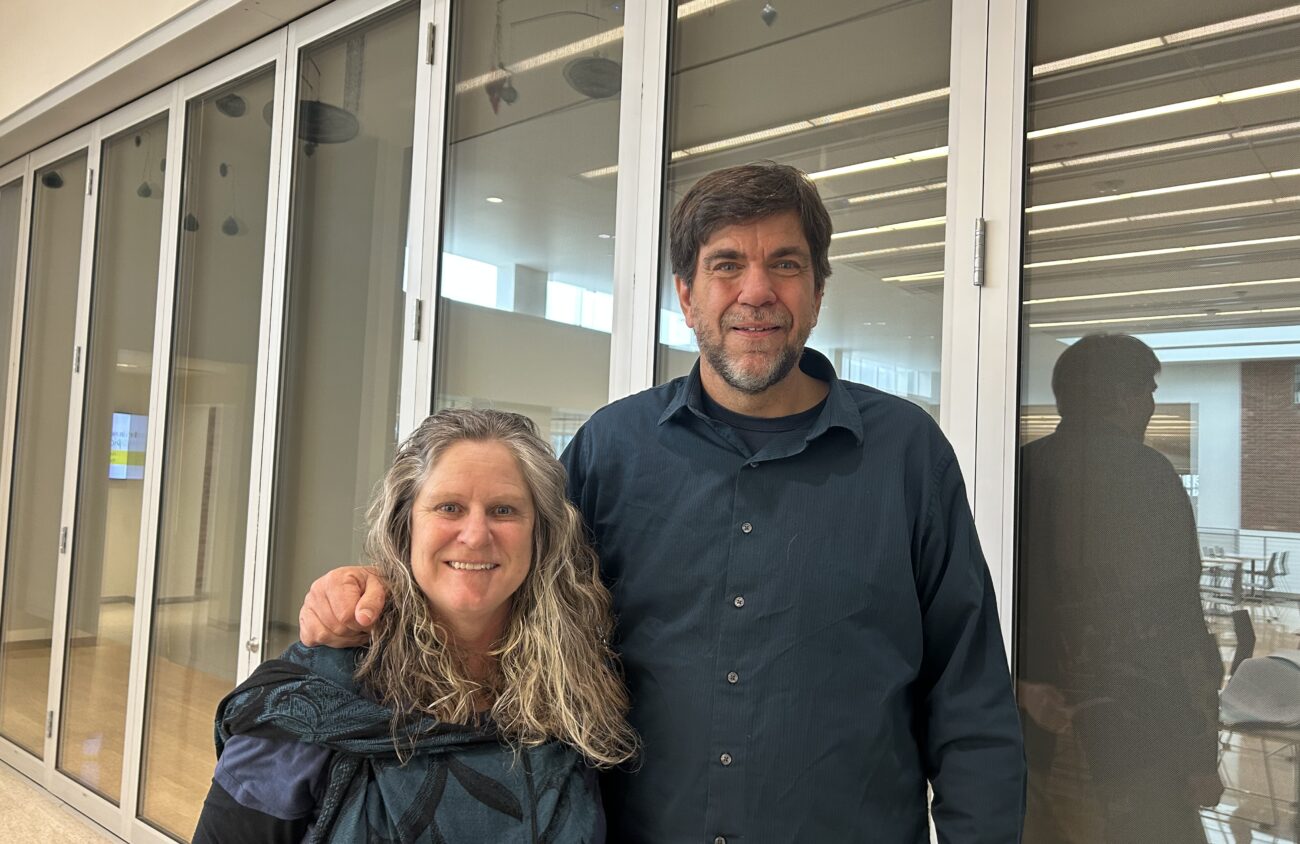The heat is rising. Oregon is fired up, literally. Then-Gov. Kate Brown declared several state of emergencies in 2020 due to climate crisis-related disasters related to wildfires, record heat waves, drought and more.
The Public Interest Environmental Law Conference (PIELC) hosted the Climate Change and Mental Health panel March 5 with Mike Meyer and Jill Leffingwell speaking on the matter. The panel was one of 11 panels, plus keynote speeches, at PIELC’s first in-person event since the pandemic.
Meyer is a social worker, counselor, concert producer and DJ for KEPW radio. Leffingwell is also a social worker and therapist. They are colleagues and shared similar interests in the environment during the panel.
One of their main goals for the workshop includes normalizing “the experience that we’re all going through in climate change,” Meyer said. They seek to create conversation through a discussion-oriented panel.
The presentation went over the effects that climate change can have on mental health and the different demographics affected. It also touched on ways to improve mental health despite the changing environment.
“It’s normal to feel grief and sadness and denial when you’re facing something as big as a global phenomenon ― like climate change,” Leffingwell said.
The audience members asked questions and added comments. Around 10 people attended the panel. Meyer and Leffingwell gave time for people to interact with one another. They also added music throughout the presentation in relation to the environment.
A global survey of 10,000 youth showed that they “feel like humanity’s doomed,” Leffingwell said.
Youth was a hot topic during the panel. A discussion began about generational differences when taking action to try and combat climate change. An audience member mentioned the pressure put on the younger generation to “fix” this problem. Another attendee said “Boomers” are blamed for administering that pressure despite elders addressing the issue through different organizations.
Some demographics are affected more than others depending on resources and support. The presentation provides examples of prolonged effects based on traumatic events, such as Hurricane Katrina in 2005 — an event that was short but had long-term effects.
Something that is not “talked enough about in mental health, especially in the face of such profound challenges, is rekindling our sense of joy and vitality,” Meyer said.
Different activities Meyer and Leffingwell mention in the presentation to help improve mental health include meditation, Dialectical Behavioral Therapy, mindfulness, Emotional Freedom Techniques, spirituality and more.
“I think we’re in this place of dichotomy with, we’re needing in the climate movement to take more action,” Meyer said.“We’re also in need of more rest and more regeneration.”
Anne Golden, owner of Anne Golden Associates, consults on organizational development, leadership, executive and career transition. She and her husband traveled to Eugene from Ashland to attend the panel. Golden says they attend PIELC whenever it is in person.
“I find that community really keeps you going,” Golden tells Eugene Weekly after the panel. says. “That sense of, ‘You’re not in this alone.’”
